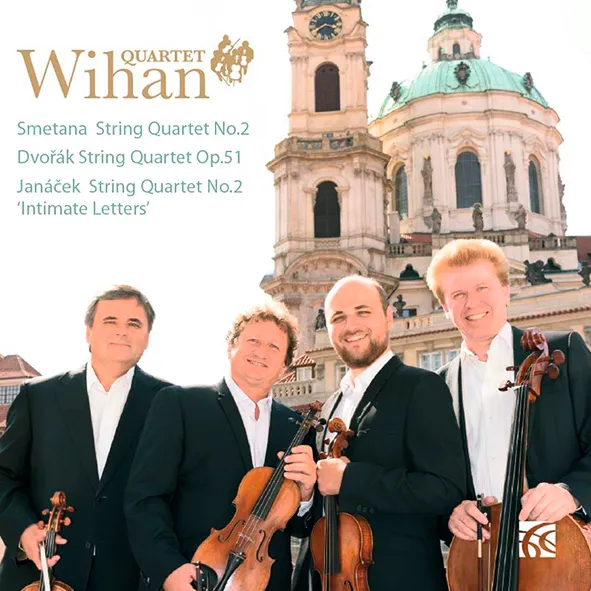
Dvořák • Janáček • Smetana Dvořák: String Quartet No. 10 in E flat, Op. 51; Janáček: String Quartet No. 2 (Intimate Letters); Smetana: String Quartet No. 2 Wihan Quartet Nimbus Alliance NI 6376 68:03 mins
The Wihan Quartet has secured a reputation as one of the world’s finest chamber ensembles. Notwithstanding two changes in personnel in recent years, they have maintained their high standing. This collection of Czech repertoire seems carefully chosen to avoid the front-line classics: Smetana’s Second Quartet is intense and worrying, while Janáček’s second is intense and exultant. Side stepping Dvořák’s American Quartet, they offer us one of the composer’s most beguiling middle-period chamber works.
Smetana’s Second Quartet was written in terrible circumstances, when he was in the last stages of syphilis and suffering bouts of dementia, concentration near impossible. The work can seem abrupt, but it is a masterpiece of concentrated passion and one much admired by Schoenberg. The Wihan Quartet’s reading of the first movement is well-considered and plots a convincing course through Smetana’s multitude of tempo indications. If they do not quite convey the spectral qualities of the succeeding ‘Polka’, they bring extraordinary cohesion to the final movements. In Dvořák’s utterly different quartet the ensemble is at its best in the last three movements with relaxed and refined performances. The first movement, shorn of its exposition repeat, is rather uncertain in tempo, though superbly played. Inspired by his love for a much younger woman, Janáček’s Second Quartet inhabits a much more febrile world. The Wihan Quartet are alive to its demands in a powerfully engaged performance, haunting in the third movement and incandescent at the end of the fourth. If these readings lack the last iota of magic, they are certainly highly recommendable.
Jan Smaczny